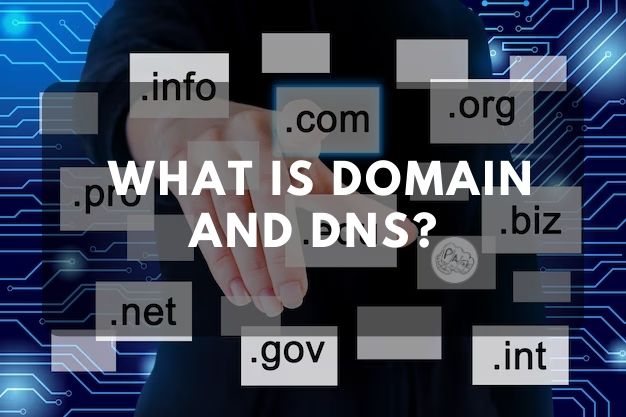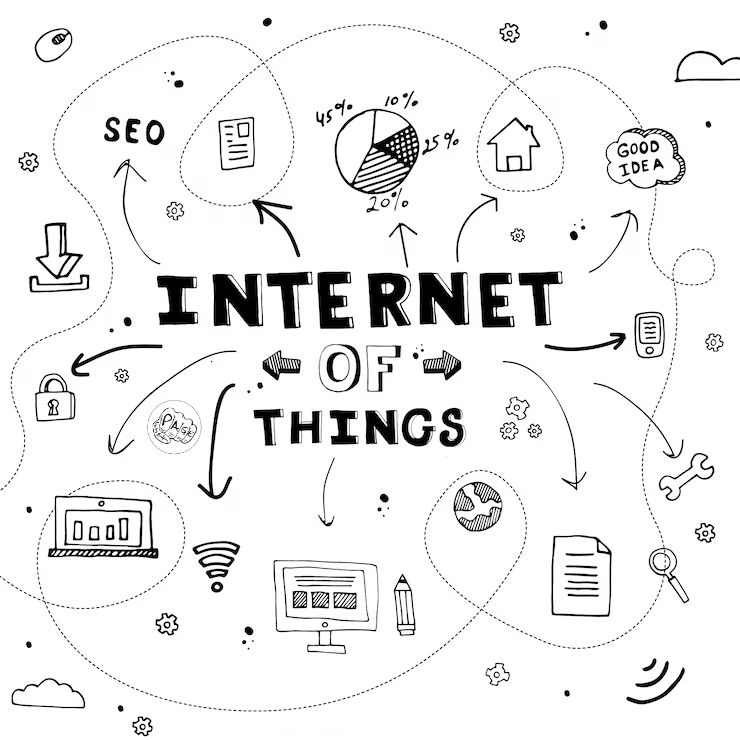Unraveling the Magic of the Internet: What Is Domain and DNS?
Curious about the internet's inner workings? Learn all about what Domain and DNS are in this comprehensive guide. Get ready to demystify the digital realm!
Introduction
Have you ever wondered what makes the internet tick? It's a vast web of interconnected information, but at its core, there are two fundamental concepts that make it all possible: domain and DNS. In this article, we're going to take a thrilling dive into the heart of the digital universe and demystify the fascinating world of domains and the Domain Name System (DNS).
Buckle up, because we're about to break down the lingo, unveil the magic, and answer all your burning questions about what is domain and DNS. By the end, you'll be well-equipped to navigate the digital landscape with confidence and a deeper understanding of how it all works.
What Is Domain?
A domain is like the digital address of a website, and it's as essential as your home address is for snail mail. It's what you type into your web browser when you want to visit a website. But let's peel back the layers and explore this concept further.
The Internet's Real Estate
- Think of the internet as a massive city, and every website is a unique building within that city. What do these buildings need? Addresses, of course!
- Domains serve as the online addresses for these websites. They provide a human-readable way to access the complex web of IP addresses that form the internet's infrastructure.
Anatomy of a Domain
- Subdomain: Some domains have subdomains, which are like distinct sections or rooms in a building. For example, in "blog.example.com," "blog" is the subdomain.
- Top-Level Domain (TLD): This is the extension you're probably most familiar with, like .com, .org, or .net. It gives you an idea of the website's purpose or origin.
- Second-Level Domain: This is the name you choose for your website, often representing your brand, like "example" in "example.com."
So, in the address "blog.example.com," "blog" is the subdomain, "example" is the second-level domain, and "com" is the top-level domain.
What Is DNS?
Now that we've grasped the concept of domains, let's meet their trusty sidekick, the Domain Name System (DNS). This system is the internet's phone book, translating user-friendly domain names into IP addresses, which are the digital coordinates for websites.
Imagine You're Ordering Pizza
- You're hungry, and you want to order pizza. What do you do? You call the pizzeria, but you don't ask for "that place on Elm Street, next to the laundromat."
- You ask for "Sal's Pizzeria." The person on the other end knows exactly where to deliver your pepperoni delight.
In this scenario, "Sal's Pizzeria" is your domain, and the person taking your order is the DNS. They know the pizza joint's real address, just as the DNS knows the IP address of a website.
The Nitty-Gritty of DNS
- DNS Servers: These are like the information hubs of the internet. They store databases of domain names and their corresponding IP addresses.
- Resolving Queries: When you enter a domain in your browser, your computer contacts a DNS server to resolve the domain to an IP address.
- Caching: To make things efficient, DNS servers often store recent queries for a while. It's like keeping a list of your favorite pizza places on speed dial.
So, in plain English, DNS ensures that when you type a domain into your browser, your computer knows where to find the website in the vast digital city.
How Do Domains and DNS Work Together?
Domains and DNS are the dynamic duo of the internet, working hand-in-hand to make sure you find the websites you're looking for. Let's see how they team up in real-life scenarios.
Browsing the Web
- You're itching to catch up on cute cat videos, so you type "cutecatsrus.com" into your browser.
- Your computer sends this domain to a DNS server and says, "Hey, where's this cutecatsrus.com place?"
- The DNS server checks its database, finds the IP address for "cutecatsrus.com," and sends it back to your computer.
- Your computer now knows where to find the cat videos and loads the website.
This might sound like a lot of behind-the-scenes work, but it all happens in the blink of an eye. Thanks to domains and DNS, the internet is a user-friendly place.
Sending Emails
- You're about to send an email to your old friend, Bob, at bob@example.net.
- Your email client relies on DNS to figure out how to route your message. It asks a DNS server to resolve "example.net" and find the mail server's IP address.
Just like that, your email is on its way to Bob, thanks to domains and DNS making sure it reaches the right place.
What Is the Role of a Domain Registrar?
Now that we know what domains and DNS are, let's talk about how you can get your hands on a domain. This is where domain registrars come into play.
Choosing Your Domain Registrar
- Pick a Registrar: Think of a registrar as a real estate agent for the digital world. They help you search for available domains and handle the paperwork.
- Check Domain Availability: You can't just claim any domain; it has to be available. Registrars provide search tools to check if your dream domain is up for grabs.
- Register the Domain: Once you find your perfect domain, the registrar guides you through the registration process. You'll pay a fee, and voilà, the domain is yours!
The Registrar's Role
- Managing Your Domain: Registrars aren't just about securing your domain; they help you manage it. You can update your contact information, renew your domain, and transfer it to another owner if needed.
Remember, a domain isn't a one-time purchase; it's more like an annual lease, so be sure to renew it to keep your online presence alive.
Conclusion
So, there you have it—domains and DNS demystified! They are the backbone of the internet, quietly working their magic to ensure you can access your favorite websites, send emails, and do so much more with just a few clicks.
Next time you're typing in a web address or sending an email, remember that behind the scenes, domains and DNS are doing the heavy lifting. You've now got the knowledge to appreciate the digital world a little more and perhaps even impress your friends with your newfound expertise.
Keep exploring the digital realm, secure your own domain, and never stop asking, "What is domain and DNS?" It's the key to unlocking the mysteries of the internet!
Share This Post
Related Articles
Boosting Your Marketing Strategy with SimilarWeb Insights
In today's digital age, effective marketing hinges on understanding your target audience, tracking industry trends, and staying ahead of competitors. This is where SimilarWeb comes into play. As a powerful digital market intelligence platform, SimilarWeb provides valuable insights that can revolutionize your marketing approach. In this article, we'll explore how SimilarWeb can boost your marketing strategy, helping you gain a competitive edge in the ever-evolving online landscape.
A Beginner's Guide to the Internet of Things (IoT)
Discover the fascinating world of the Internet of Things (IoT) in this beginner-friendly guide. Learn what IoT is, how it works, and why it matters. Explore real-world examples and get ready to embrace the future of connectivity!
Mastering Chat GPT: Tips and Tricks for Effective Communication
Unlock the potential of Chat GPT with these expert tips and tricks for effective communication. Become a master at chatting with AI!
What is Open-Source?
Open-source is a term that refers to software whose source code is publicly available and can be modified, distributed, and used by anyone. Open-source software is typically developed collaboratively by a community of developers who share a common vision and values. Open-source software offers many benefits, such as transparency, security, innovation, and cost-effectiveness.
What is Web Hosting?
Web hosting is a service that allows individuals and organizations to publish a website or web application on the Internet. A web host, or web hosting service provider, is a business that provides the technologies and services needed for the website or web application to be viewed on the internet. Websites are hosted, or stored, on special computers called servers. When Internet users want to view your website, all they need to do is type your website address or domain into their browser. Their computer will then connect to your server and your webpages will be delivered to them through the browser.
Related FAQ
No related FAQ.
Say Hello
To Your Dream





